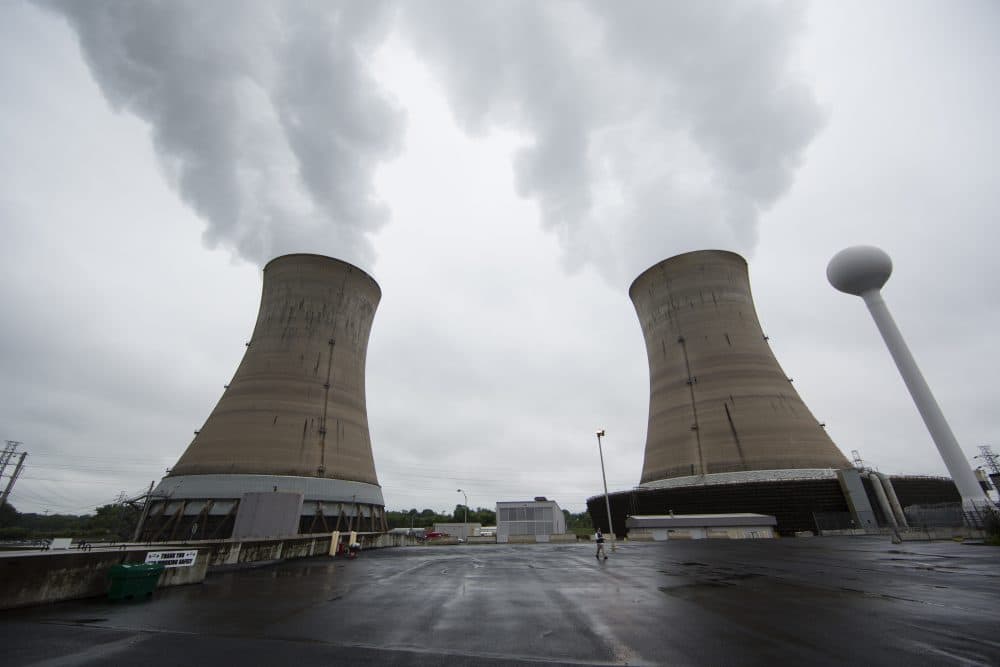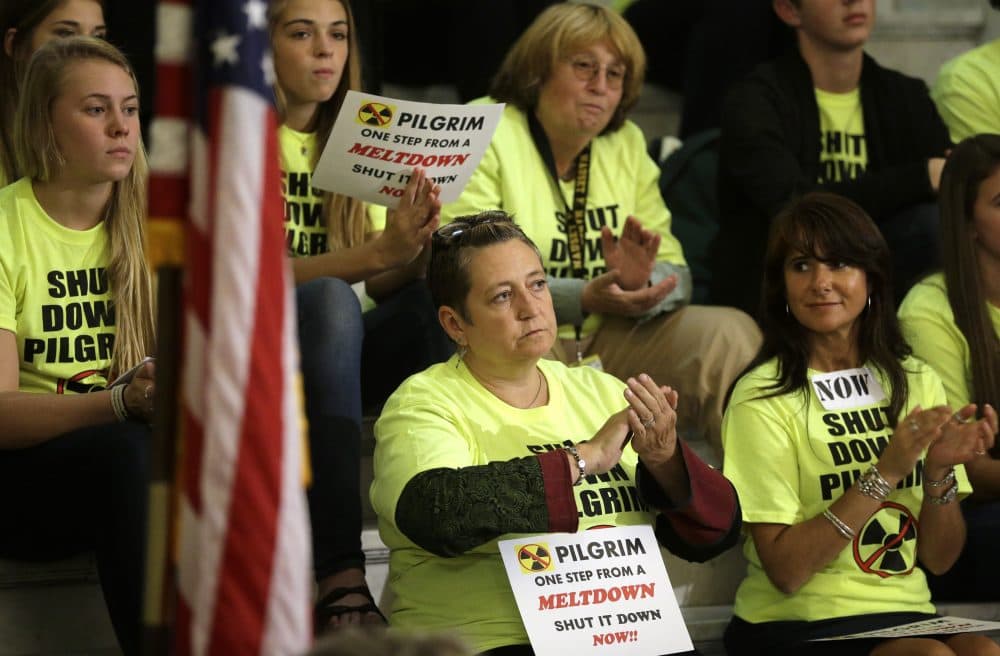Advertisement
Commentary
This Nuclear Option Might Just Save The World

As I watched Mike Pence introduce President Trump’s climate accord withdrawal speech last week, our cat chose the moment to pee in its litter box. I got to observe two pets simultaneously, mine and the president’s, the latter a lapdog drooling over his master’s non-accomplishments: “President Trump has been reforming health care, enforcing our laws, ending illegal immigration, rebuilding our military, and ... rolling back excessive regulations and unfair trade practices that were stifling American jobs.”
But just as few Americans have noticed these wonders Trump supposedly has worked, so too does a minority share the president’s view that the Paris climate accord was a terrible, horrible, no good, very bad deal. But now that “screw them and their science” has become presidential policy, the question before us is: What’s next?
The good news is that cities, states and the marketplace will pick up the clean energy baton that the president dropped. As even some environmentalists concede, that energy future likely will include a controversial source — nuclear power.
you don’t have to be happy that we may need nuclear -- there are legitimate safety and cost concerns -- to accept that it’s a lesser evil than a warming world.
Making power by splitting atoms unnerves the left’s aging hippies, suckled on Three Mile Island and the no-more-nukes 1970s. But you don’t have to be happy that we may need nuclear — there are legitimate safety and cost concerns — to accept that it’s a lesser evil than a warming world. While we must proceed cautiously, nuclear energy, which produces no greenhouse gases, is getting a look from reputable folks like the Union of Concerned Scientists (UCS).
It’s true, as the group says, that “renewable energy technologies and energy efficiency measures can help dramatically cut [greenhouse] emissions, and are safe, cost-effective, and commercially available today. Yet limiting the worst effects of climate change may also require other low- or no-carbon energy solutions, including nuclear power,” which provides almost a fifth of America's electricity, our third biggest source of juice.
There are inherent limitations to renewables like wind and solar power; it’s not always sunny or windy. Also, according to the technology-promoting Breakthrough Institute, “There are ... at present no viable, low-carbon technologies for the production of steel, concrete, or fertilizer,” essential products all.
New nuclear plant designs aren’t your mother’s nuclear plant, but rather “are small, hyper efficient, and radically safe,” the Breakthrough folks write. “They can’t melt down, are often a tenth or less the size of conventional light-water reactors, can be manufactured in factories just like wind turbines and solar panels, and can operate at sufficiently high temperatures to provide heat and power for steel, cement, hydrogen, and fertilizer production. Like wind and solar, these reactors produce energy with zero carbon dioxide. Unlike wind and solar, they produce it 24/7.”
Advertisement
Not all environmentalists are convinced. But even the more cautious UCS says “many of nuclear power’s risks can and should be substantially reduced.” The group’s recommendations include quicker storage of nuclear waste in dry steel-and-concrete casks; tightening security around reactors to guard against terrorism and other threats; and improving safety standards for new plants.

The biggest impediment to nuclear plants may be, as a Houston Chronicle writer noted, that “they cost too much.” Four plants under construction by Westinghouse are over-budget and behind schedule. And like other energy sources, nuclear must compete with the bargain-basement price of natural gas, a fossil fuel that’s cleaner than others. While opposing fracking for gas has become religion for some environmentalists, smart ones accept it as a necessary stopgap en route to a decarbonized future. Investing in new nuclear technology could limit how long we’d need that stopgap.
UCS's safety recommendations apply mainly to existing plants, but their owners, UCS says, consistently lobby against more stringent safeguards and to weaken current ones. UCS considers Breakthrough's enthusiasm for new reactor designs wildly optimistic and says they're at least a decade away from being commercialized, if at all. Breakthrough's analysts also think private entrepreneurs, aided by smart regulatory policy, might invest in new plants, which may be another case of hope trumping experience; taxpayer support surely will be needed for basic research and development, given the recent slowdown in venture capital for clean technology. The VC firms' aversion to investing makes the Trump administration’s proposed cuts in research funding all the more irresponsible.
Trump said he’d try to renegotiate the Paris deal to favor the United States, whatever the hell that means. He’s betrayed no hint that even Republican-endorsed ideas to combat climate change, like a carbon tax, will make its way into his eventual policy. Yet if pundit David Brooks is right that Trump bases decisions solely on what will offend elite opinion, then backing nuclear energy may be a provocation he’d consider.
One that just might help save the Earth.
editor's note: This post has been updated to reflect feedback from the Union of Concerned Scientists.
This article was originally published on June 07, 2017.
